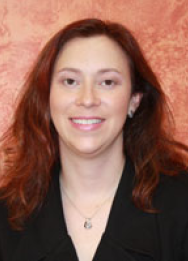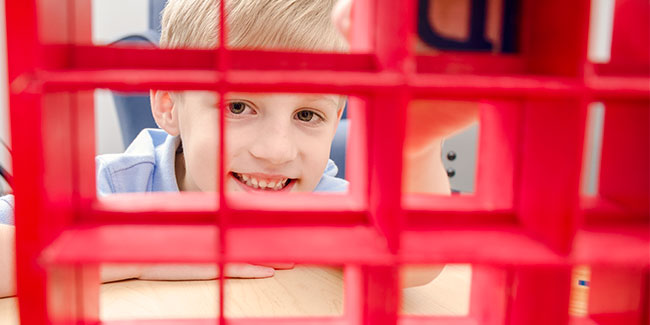Program Overview
SHSU’s Specialist in School Psychology Program (SSP Program, or Program) offers training to individuals interested in providing psychological services to children, families and professionals in educational settings. It is a 60-hour graduate degree program leading to a Specialist degree in psychology (more advanced than a Master’s degree). The vast majority of students complete this degree program as full-time graduate students over three consecutive years, with the first two years taken to complete coursework and practical experiences leading up to the final year of SSP Internship. It is intense, yet fun, and the work you do here as an SSP graduate student is very practical and directly linked to the job role you will be performing in the future. The Program emphasizes field-based experiences for students throughout the degree plan. This is a non-thesis graduate program, meaning students are not required to complete a research project, but all students are encouraged to be involved in research projects if they are interested in doing so.
Accreditation
The Specialist degree meets the academic requirements recognized by the Texas State Board of Examiners of Psychology (TSBEP) for licensure as a Licensed Specialist in School Psychology (LSSP) for work within the state of Texas. Additionally, the Program is nationally recognized by the Council for the Accreditation of Educator Preparation (CAEP) and is fully approved by NASP, the National Association of School Psychologists. This accreditation and approval status is important because it affords students the ability to apply for National Certification in School Psychology (NCSP) upon graduation – a credential used by 31 states as part of their standard for certification! Individuals who meet training requirements for the NCSP generally meet and often exceed the training requirements for initial credentialing in ALL states with few exceptions.
Data-Based Intervention and Performance-Based Assessment
 The SSP Program is based on the philosophy of integrating scientific inquiry and service delivery through the use of data-based intervention and performance-based assessment. The paradigm assumes that the specialist in school psychology is engaged in problem-solving and collaborates with all involved parties in empirically-based decision-making. As candidates in the Program, you will be encouraged to relate research associated with psychology and education in an effort to advance social/emotional and cognitive accomplishments in school-aged young people. Human diversity and individual differences necessitate a variety of interventions to address the many influences which affect students and their performances. Specialists in school psychology should be effective problem-solvers who use appropriate data-gathering procedures to assist various systems associated with students, including the individual students themselves, families, teachers, administrators, districts, and communities.
The SSP Program is based on the philosophy of integrating scientific inquiry and service delivery through the use of data-based intervention and performance-based assessment. The paradigm assumes that the specialist in school psychology is engaged in problem-solving and collaborates with all involved parties in empirically-based decision-making. As candidates in the Program, you will be encouraged to relate research associated with psychology and education in an effort to advance social/emotional and cognitive accomplishments in school-aged young people. Human diversity and individual differences necessitate a variety of interventions to address the many influences which affect students and their performances. Specialists in school psychology should be effective problem-solvers who use appropriate data-gathering procedures to assist various systems associated with students, including the individual students themselves, families, teachers, administrators, districts, and communities.
The academic knowledge base for the Program embraces an integrated sequence of foundational and practical coursework as well as field-based experiences and professional practice. From your very first semester you will be actively working in the field, gaining valuable experience related to professional practice expectations and addressing student behavioral and academic concerns. Field-based experiences substantially increase during the second year of the Program, and coursework includes three separate practica over two semesters. Practica are designed to provide practice and experience in the areas of the educational process, assessment, and direct and indirect intervention. Close university supervision is provided. Practica are generally conducted in school districts near SHSU yet within the greater Houston area. The final year of the Program consists of a full-time internship (although this may be completed in two consecutive part-time years). This culminating experience provides an opportunity for the Intern to develop a clear professional identity and explore the full responsibilities of a practicing school psychologist while having solid supervisory support from an experienced school psychology field supervisor. The Internship is typically the point in training where students fully integrate all previous training experiences. It is designed to meet the specific training objectives of the National Association of School Psychologists (NASP) and the Texas State Board of Examiners of Psychologists (TSBEP). The Intern is required to accumulate at least 1200 practice hours within a school setting, and the SSP Program strongly encourages at least 25% of the total hours to be completed in activities of direct client contact.
Student Requirements
Students are accepted into the Program as part of a full-time cohort. Most classes are offered during the daytime hours at the SHSU main campus in Huntsville, but classes are arranged in such a way to support field-based experiences each semester. Many student choose to work part-time while enrolled in the Program, but employment of more than 20 hours per week is not recommended. Some of the field-based experiences take place in or near Huntsville, but other experiences may be arranged throughout the greater Houston area with faculty approval. Part-time enrollment is possible as a non-degree student for up to 15 graduate credit hours. Also, it is possible for individuals with psychology degrees to re-specialize by taking needed courses and obtaining additional school-based supervised experiences prior to completion of an internship. Individuals with degrees in education, although they may bring in as many as 15 graduate credit hours, will need to obtain a degree in psychology, and thus must complete the vast majority of the specialist program. Both non-degree students and re-specialization students must apply to the Program and gain admittance as part of a cohort.
For More Information
The SSP Program faculty encourages you to explore the information on this website more fully and to contact us if you should have any questions regarding our Program. We have had the honor of working with some exceptionally dedicated and talented Program candidates over the past several years, and we look forward to working with more individuals who demonstrate they have “what it takes” to work in the field of school psychology!







